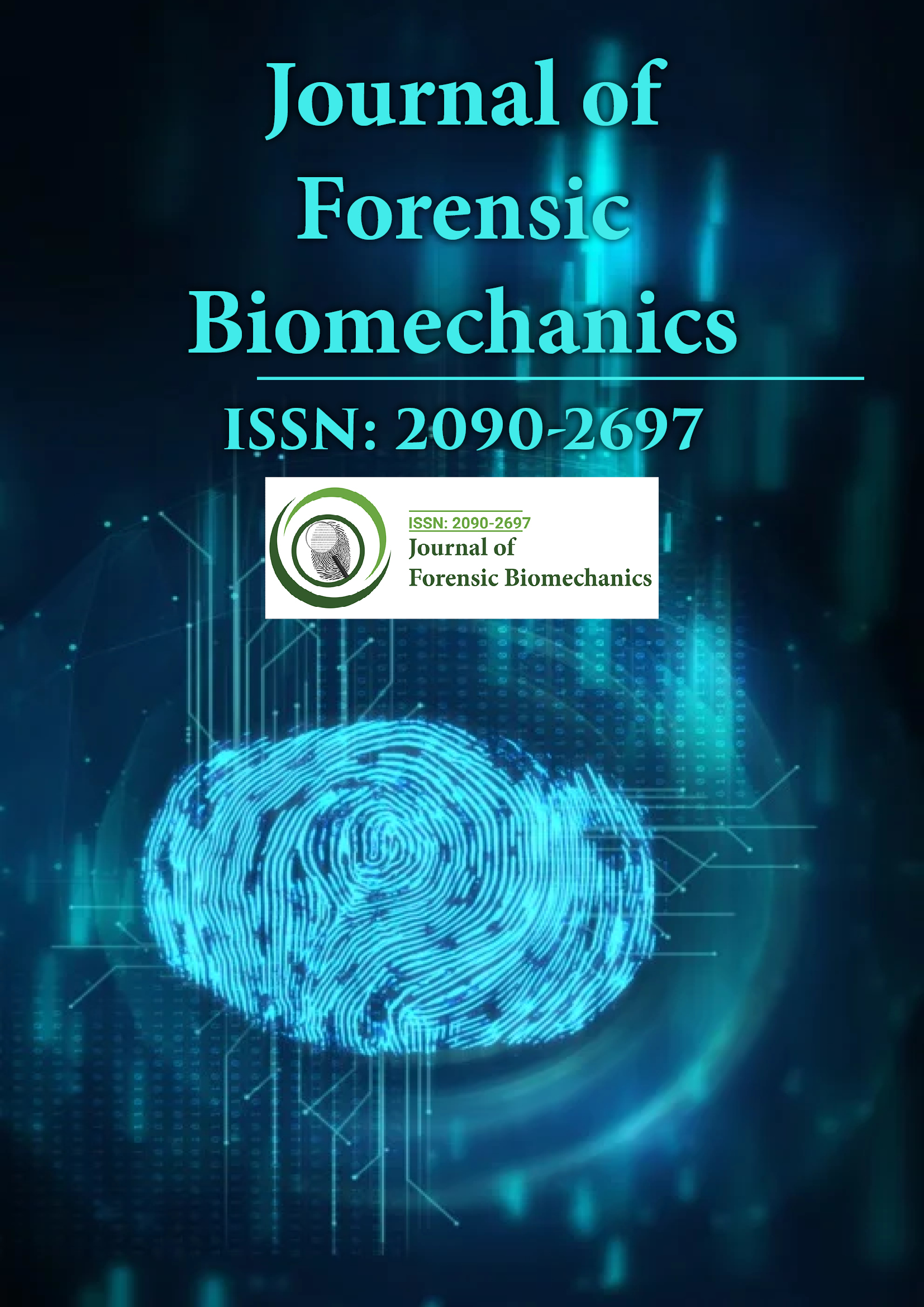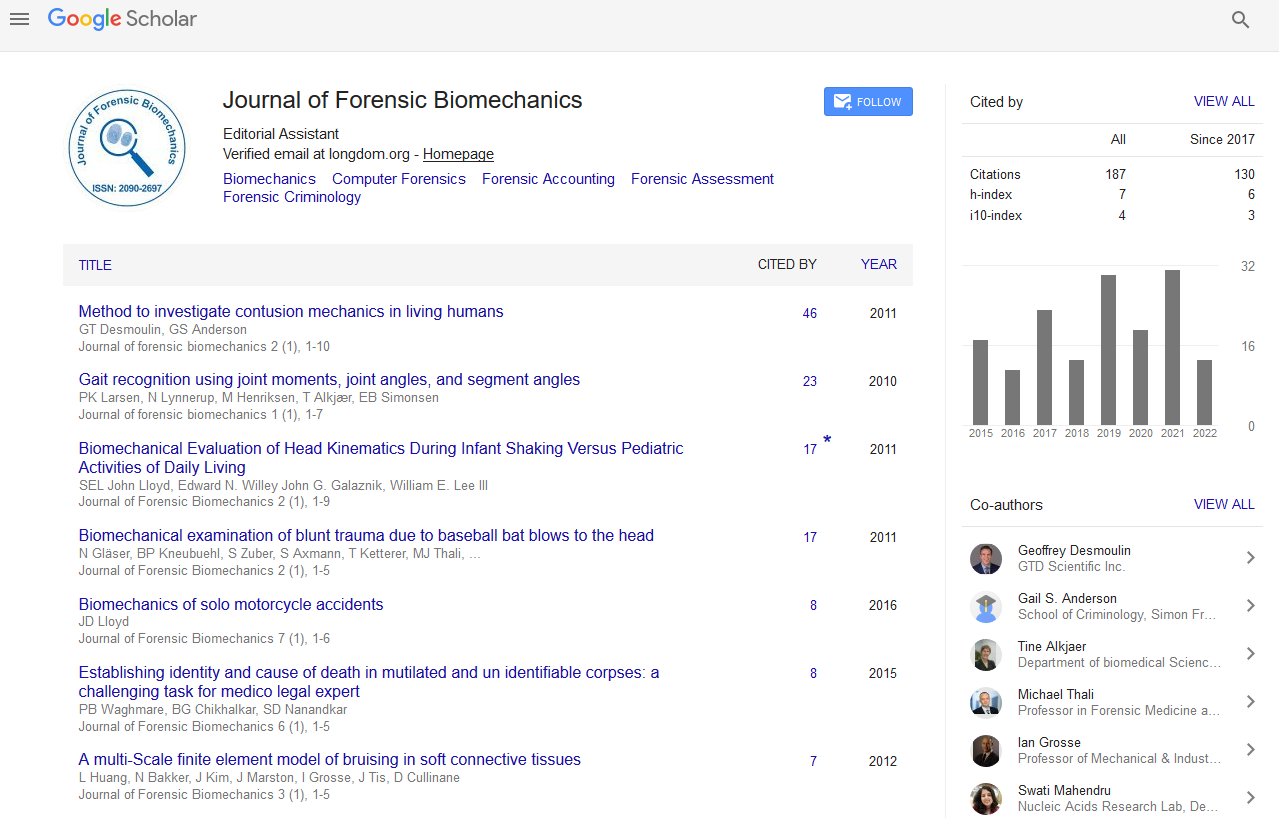Indexed In
- Genamics JournalSeek
- SafetyLit
- Ulrich's Periodicals Directory
- RefSeek
- Hamdard University
- EBSCO A-Z
- Geneva Foundation for Medical Education and Research
- Euro Pub
- Google Scholar
Useful Links
Share This Page
Journal Flyer

Open Access Journals
- Agri and Aquaculture
- Biochemistry
- Bioinformatics & Systems Biology
- Business & Management
- Chemistry
- Clinical Sciences
- Engineering
- Food & Nutrition
- General Science
- Genetics & Molecular Biology
- Immunology & Microbiology
- Medical Sciences
- Neuroscience & Psychology
- Nursing & Health Care
- Pharmaceutical Sciences
Abstract
Child Physical Abuse in Northern Greece: A Retrospective Study Based on Forensic Protocols
Elisavet Antoniadou, Theodoros Dardavesis, Evangelos Pavlou and Eleni Zaggelidou
The aim of this study was to emerge the problem of child physical abuse in northern Greece and to highlight the characteristics of the children that are in danger, as few relevant studies have been conducted in that area so far.
Methods: A retrospective study was designed based on data that derived from the Forensic Service of Thessaloniki, through the period 2005-2015. The archive was in paper form and included allegations of physical abuse related to children.
Results: 90 consecutive incidents were totally recorded during this period. The age of the child related to offender's sex (p=0.001) and male offenders abused frequently older children, in contrast to women whose victims were usually young children. A significant relationship found between the gender of the offender and the existence of domestic violence (p=0.037) and in most cases, the male offender abused not only the child but also the other members of the family. Fatal incidents of severe physical abuse were associated to the age of the victim (p=0.002), the psychiatric profile and the use of prohibited substances by the offender (p=0.023). Young children, whose parents suffered from a psychiatric disease or they were drug users, had greater chance to die from an injury.
Conclusion: The small number of the allegations attributed to the fact that most cases of physical abuse are unreported and usually end up in hospitals and less to the police and the Forensic Services. Although the majority of the variables that were studied agree to the literature, further research in large study population is recommended, in order to define the characteristics of the children that are in danger in Greece. Actions are required at all levels of prevention, emphasizing to the early detection of the problem and the effective management.

